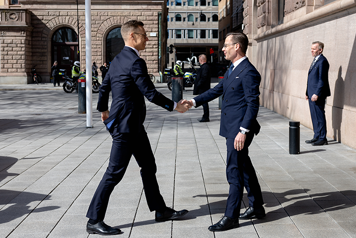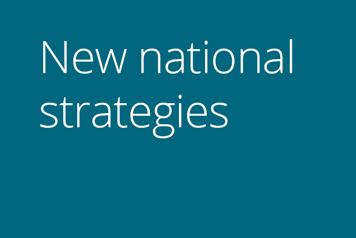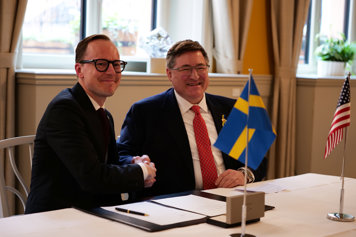Content about the Government and the Government Offices of Sweden
Total 1987 hits.
-
The 2024 Spring Budget in five minutes
Published · Article from Elisabeth Svantesson, Ministry of Finance
On Thursday 25 April, Prime Minister Ulf Kristersson received Prime Minister of Latvia Evika Siliņa for talks. A joint press conference was held at Rosenbad in the afternoon.

On 23–24 April 2024, the President of the Republic of Finland Alexander Stubb and his wife Suzanne Innes-Stubb payed a State Visit to Sweden at the invitation of HM The King. The President was accompanied by a delegation of government and business representatives.

The Government has recently presented three new national strategies for increased safety and security in Sweden. These are a strategy for strengthening efforts against violent extremism and terrorism, a strategy against organised crime and a crime prevention strategy on social prevention measures against criminal networks. You can read more about the strategies here.

On April 16, Minister for Education Mats Persson signed the Artemis Accords, a set of principles for exploration and conduct in space. This also enables Sweden to take part in the international US-led Artemis campaign.

On 15 April the Government presented its 2024 Spring Fiscal Policy Bill and Spring Amending Budget for 2024. Inflation has fallen considerably and is expected to continue to do so, while at the same time unemployment is expected continue to rise. In light of this, the Government is presenting its Spring Amending Budget with measures to navigate us through the recession, safeguard the welfare system and make Sweden a safer, more secure and wealthier country. The Budget is based on an agreement between the Government and the Sweden Democrats.

Sweden’s migration policy is undergoing a paradigm shift. The Government is intensifying its efforts to reduce, in full compliance with Sweden’s international commitments, the number of migrants coming irregularly to Sweden. Labour immigration fraud and abuses must be stopped and the ‘shadow society’ combated
Published · Article from Elisabeth Svantesson, Ministry of Finance
